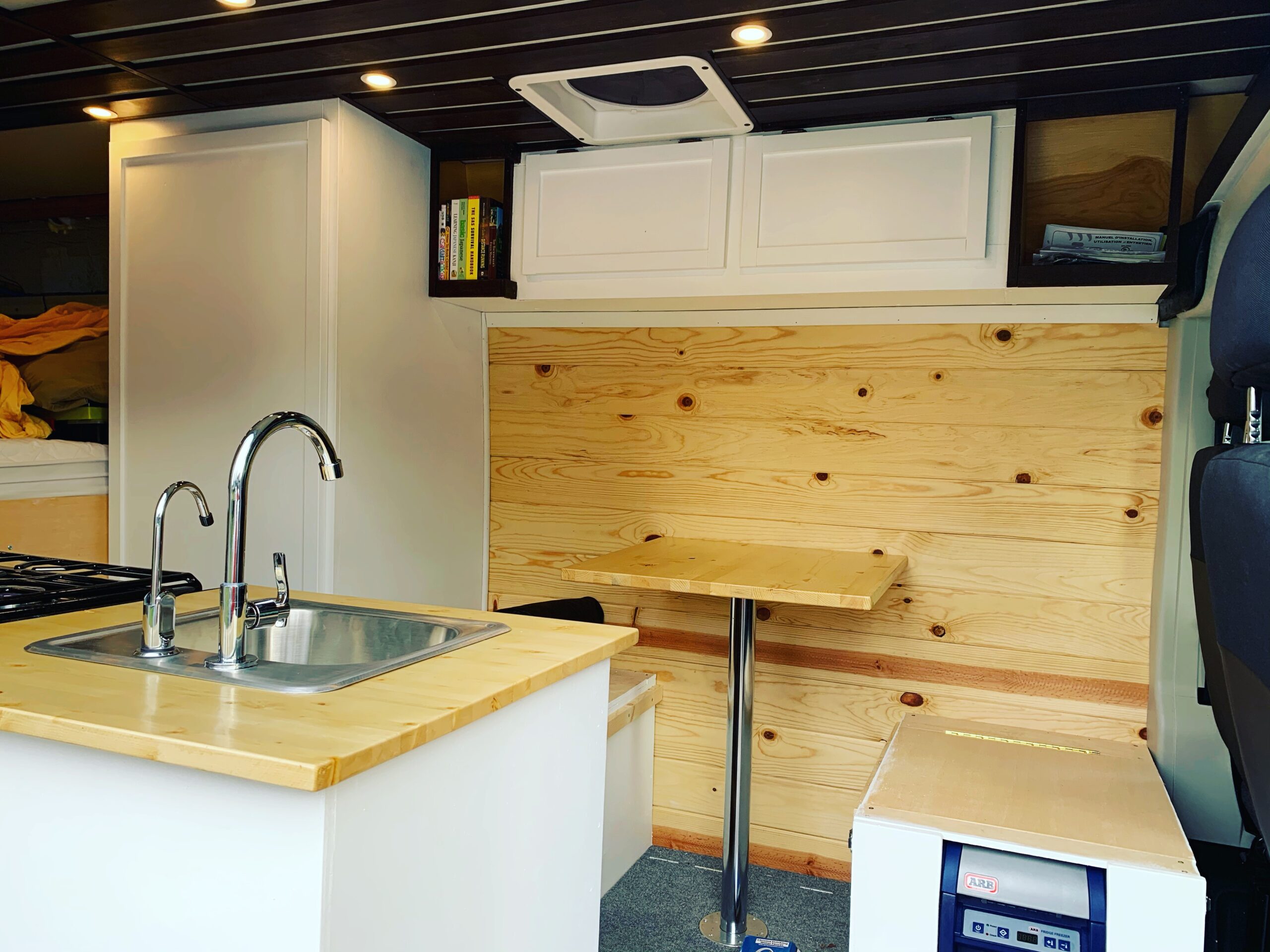Why would anybody want to live in a van anyway? Well, with both housing prices and rent on the rise all over the world and with wages not keeping up, people are becoming drawn to alternative housing solutions.
Enter stage left — #vanlife
One of the first things you need to start van life is… a van. Obvious, I know. But with so many different options, which are the best vans to live in? What is the best van for conversion? More importantly, you should be asking which van is best for you?
There are two parts to finding the best van for you. First, what does your van need to be a home?
If you haven’t already, check out Camper Van Floor Plans – Designing The Layout.
It will help you determine what features and amenities you want your home on wheels to have. Then you can move onto the second part. Which van best accommodates your needs.
If you decide to buy a used van instead of new, check out this great little guide that we put together.
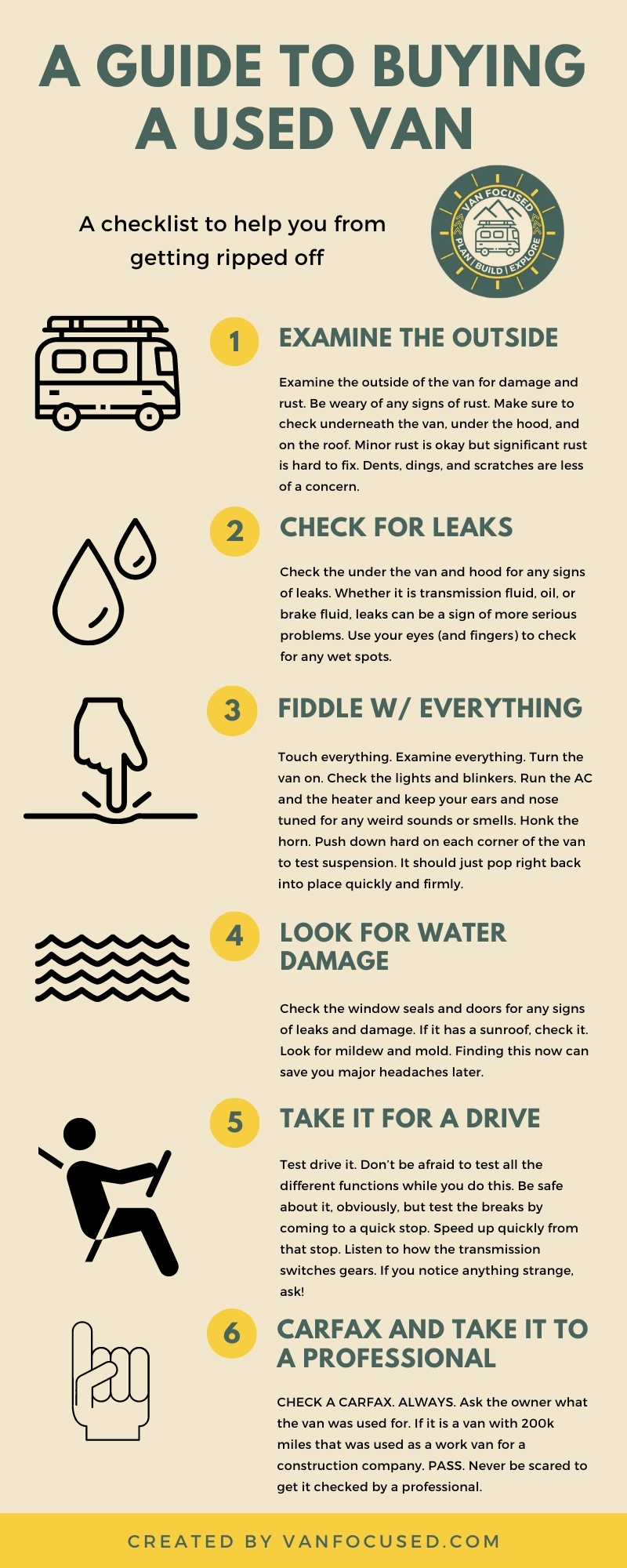
Now it’s time to talk about vans! I’ll cover eight of the best vans to live in, as well as three bonus vehicles. First, I’ll give you a vehicle overview. Then I’ll get into some of the more technical details if possible.
Dodge Promaster
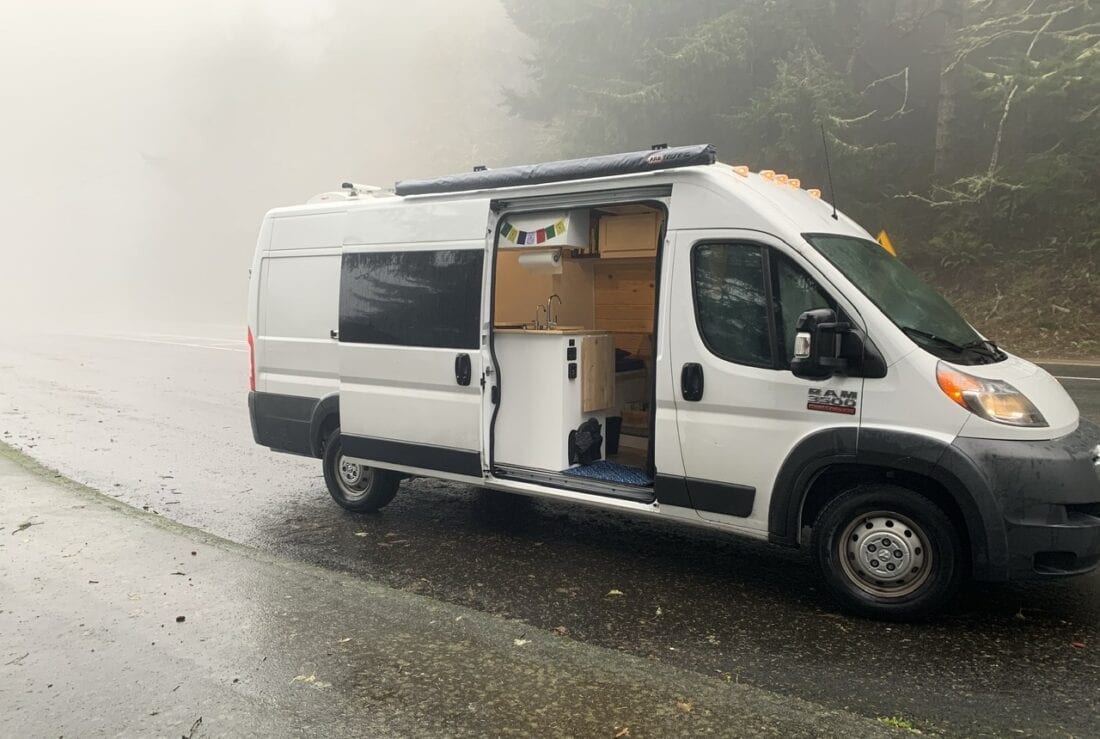
The Promaster is the widest of the vans I’ll cover today, coming in at 73” (interior). With this bad boy, you can fit a bed crosswise. That’s a major space saver.
Additionally, it has one of the “squarest” interiors. While you might not appreciate that right now, you will once you start building.
Starting in 2019, new Promasters are only available with a gas engine. However, you can buy an older used diesel.
The Promasters give you three body types to choose from: regular, extended, and long body. These give you an interior length of about 106”, 126” and 140” respectively. The regular body come with a 136” wheelbase, and the longer bodies come with a 159” wheelbase. As far as roofs go, only the standard comes with a low top and give you 64” of height. The high top gives you 74” of height.
Although the Promaster is one of the most affordable vans on the list, that comes with a price. Many folks complain about how uncomfortable the seats are. They say the seats almost force you to stand while sitting.
In addition, Car and Driver reported poor steering and handling. Also, all Promasters come with front wheel drive. This is an advantage in most vehicles when you need traction. However, in a camper van, much of the weight is over the rear axle, so be cautious of your weight distribution or the front wheel drive wont help you much.
Regardless of their drawbacks, Dodge Promasters are constantly listed as one of the best vans to convert into a camper van. Often listed alongside our next contender…
Mercedes Sprinter
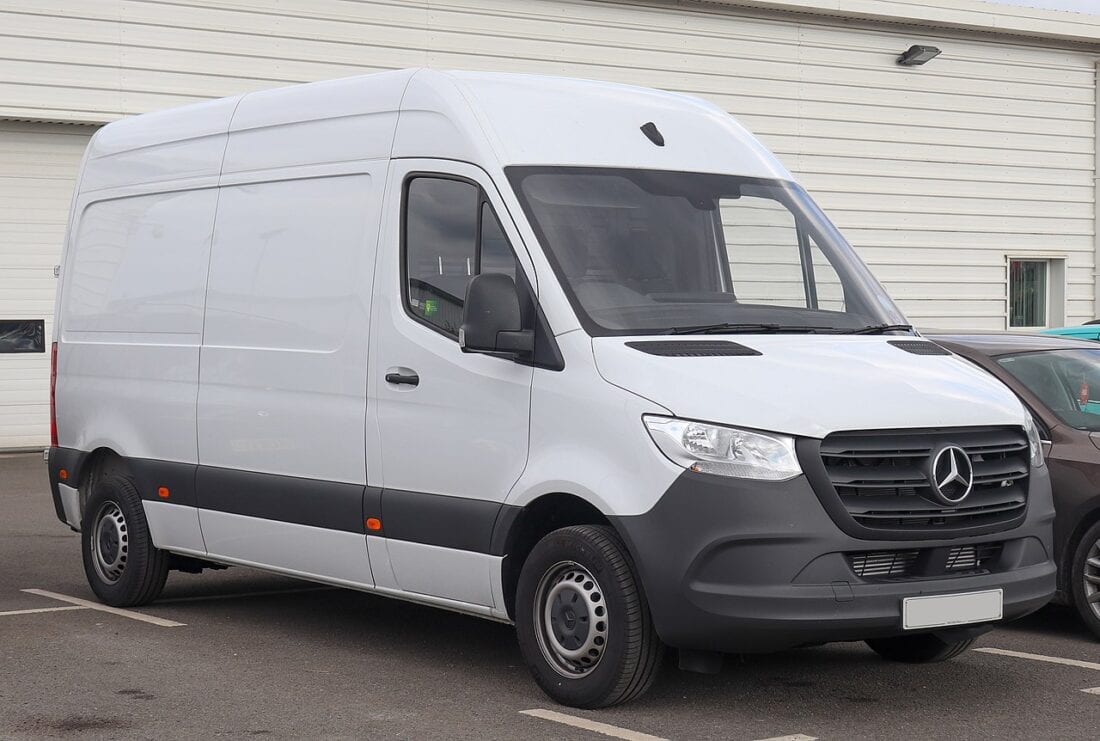
This is the only newer van out there with a 4×4 option. Therefore, the Mercedes Sprinter van is a favorite among off-road enthusiasts. Also, if you need a long van with a lot of space, this is the conversion van for you.
However, unlike the Promaster, Sprinters are curvy beasts. But that still doesn’t stop it from being a popular van for conversion. You’ll still get 69” across the widest part of the van.
If you want a diesel, the Sprinter is a great choice. And if you don’t, in 2018 Mercedes started producing them with gas engines, as well as the diesel. All Sprinters are rear wheel drive.
The Sprinter is available in three different bodies: standard, extended, and extra long. The interior lengths are 123”, 165” and 180” respectively. The standard comes on a 144” wheelbase, the longer bodies come on a 170” wheelbase. They also come with three different heights: low (standard only), high, and super high. This gives you an interior height of 64”, 75” and 87” respectively.
Sprinters get great fuel economy, and they handle well. They also hold their resale value. The biggest disadvantage of the Sprinter is cost. Not only are the upfront costs steep, repairs and maintenance on the diesel engines are also expensive. Also, some of the older models are known to have rust issues.
Ford Econoline
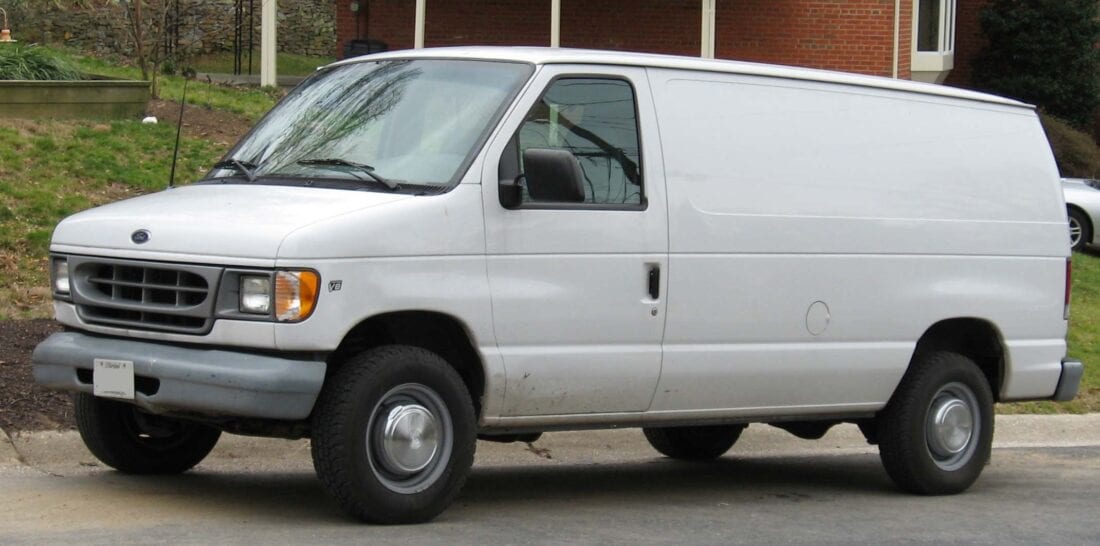
For over 50 years Ford produced the Econoline before replacing it with the Transit. There are many used ones out there in great shape for a good price.
Because Ford made them for over 50 years, it’s hard to give detailed specs about the Econoline. There are too many to list! But I can tell you Ford made them in both gas and diesel. I can also tell you there’s only one wheelbase option with two different lengths.
Additionally, you only get one roof height option, and it’s a low top. Unless a pop-up or extended roof was added after-market.
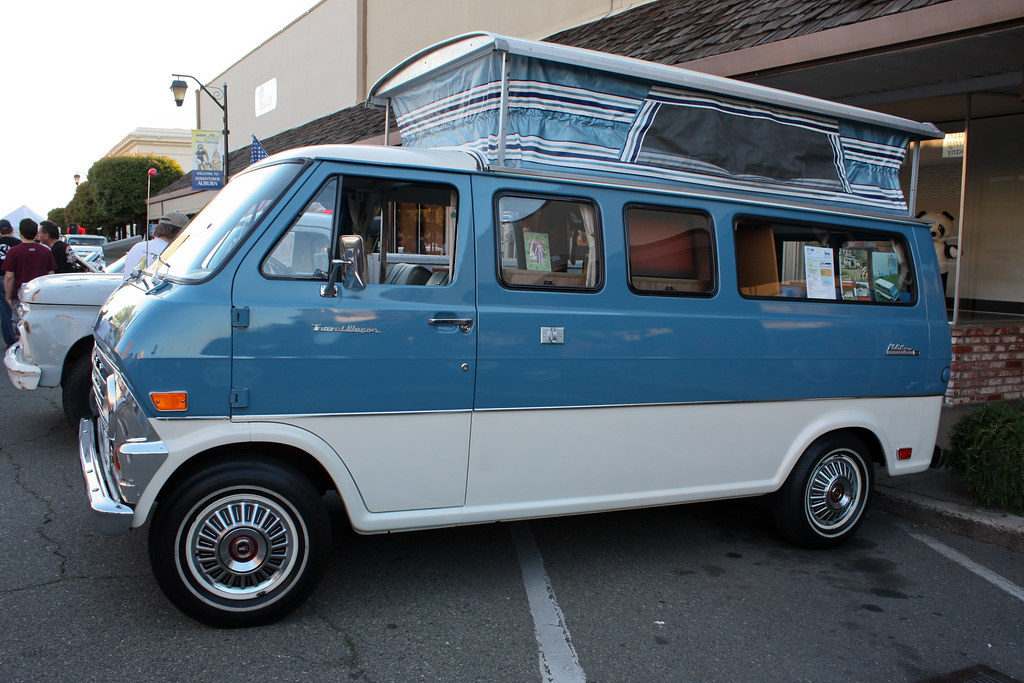
All that being said, the Ford Econoline is a very popular choice making it one of the best vans for conversion. Due to it’s low price entry point and how common they are.
If you head over to the Van Focused Facebook Group, you will find many Ford Econoline van enthusiests.
Ford Transit
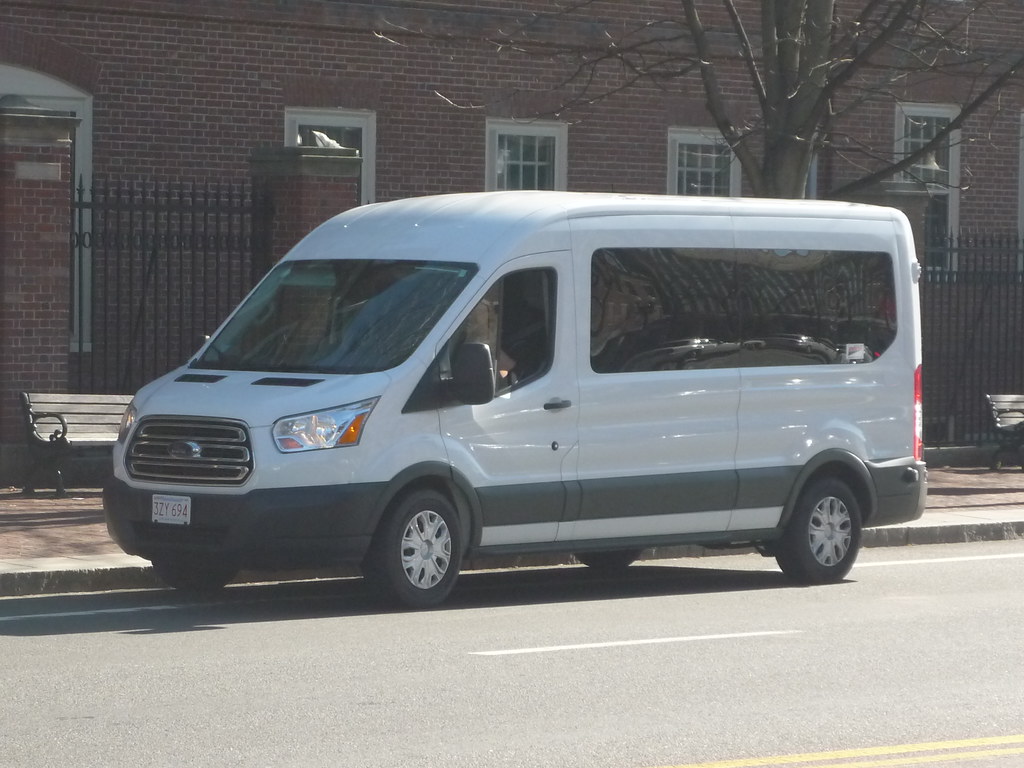
In 2014 the Transit replaced the Econoline. Therefore, they are newer to the US market. However, they’re quickly becoming a popular van among van lifers.
Like the Sprinter, Transits offer a width of 69”. However, they are squarer than the Sprinter. Although the Transit has both a gas and diesel option, the diesels are harder to find. In 2020 the Transit offered an all-wheel drive option, but before that they were all rear wheel drive.
The Transit is available in three different bodies: regular, long, and extended length. The interior lengths are 106”, 124” and 154” respectively. The regular body has a 130” wheelbase, and the longer bodies have a 148” wheelbase. The Transit comes in three different roof heights: low, medium, and high, giving you an interior height of 48”, 70” and 77” respectively. Both the low and long body are available with a low roof.
Although Transits are becoming popular, their recent introduction to the US market has two disadvantages.
- Their long-term reliability is unknown.
- Used ones are harder to find.
On a side note, if you go for the extended length body, keep in mind it has a long rear overhang.
Chevy Express
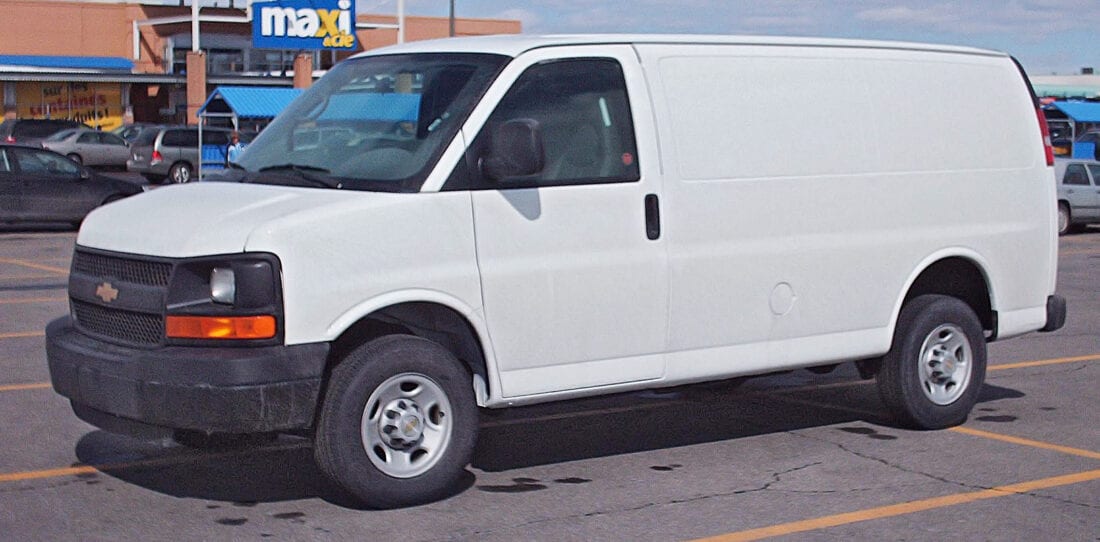
If you want engine options, the Express give them to you with four different engines to choose from. You can pick from one diesel or three gas engines, two of which are V8s.
If you’re looking for additional fuel options, The Express has you covered. Starting in 2017 one of the V8s not only runs on gas, it can also run on propane or natural gas.
All Expresses are rear wheel drive.
As far as length goes, you have two options. The standard 135” wheelbase gets you 124”. The 155” wheelbase gets you 146”. There is only one roof height available with an interior height of 48”. One of the advantages of the Express is the side door is available in either a sliding door or hinged doors. The hinged door is advantageous. Unlike the sliding door, you can build features onto it, like storage. Additionally, older models are very affordable.
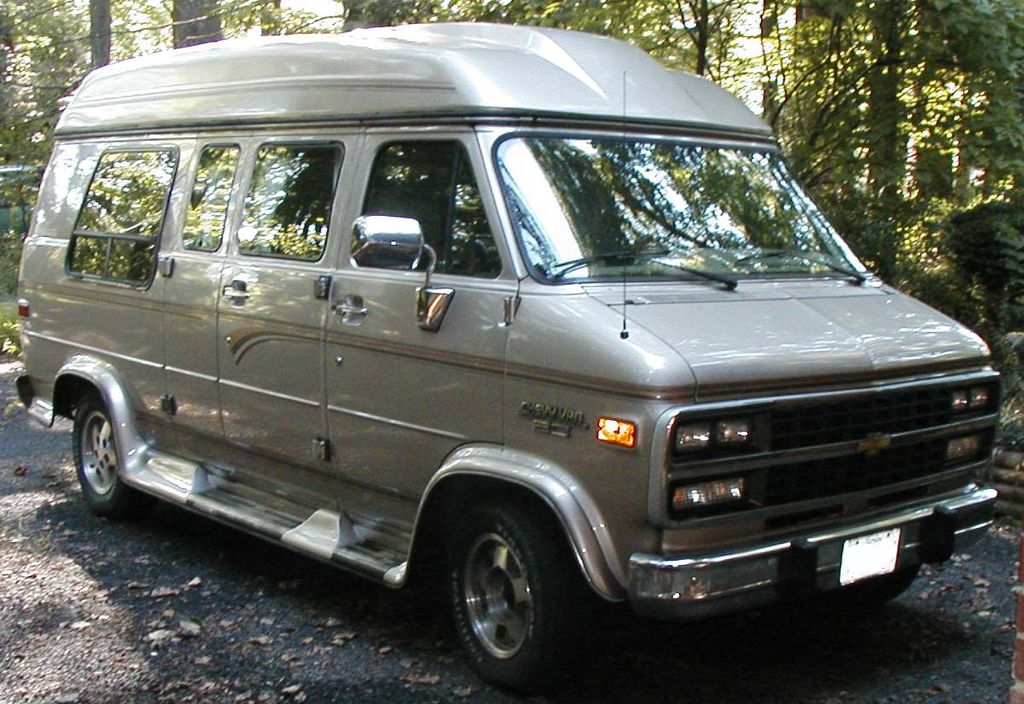
The Express is also quite popular among van conversion companies. During the conversion process, a high roof is added for more headroom. If like the Express but long for a high top, look for one that’s already converted. On the other hand, you could always add a high top yourself!
Nissan NV
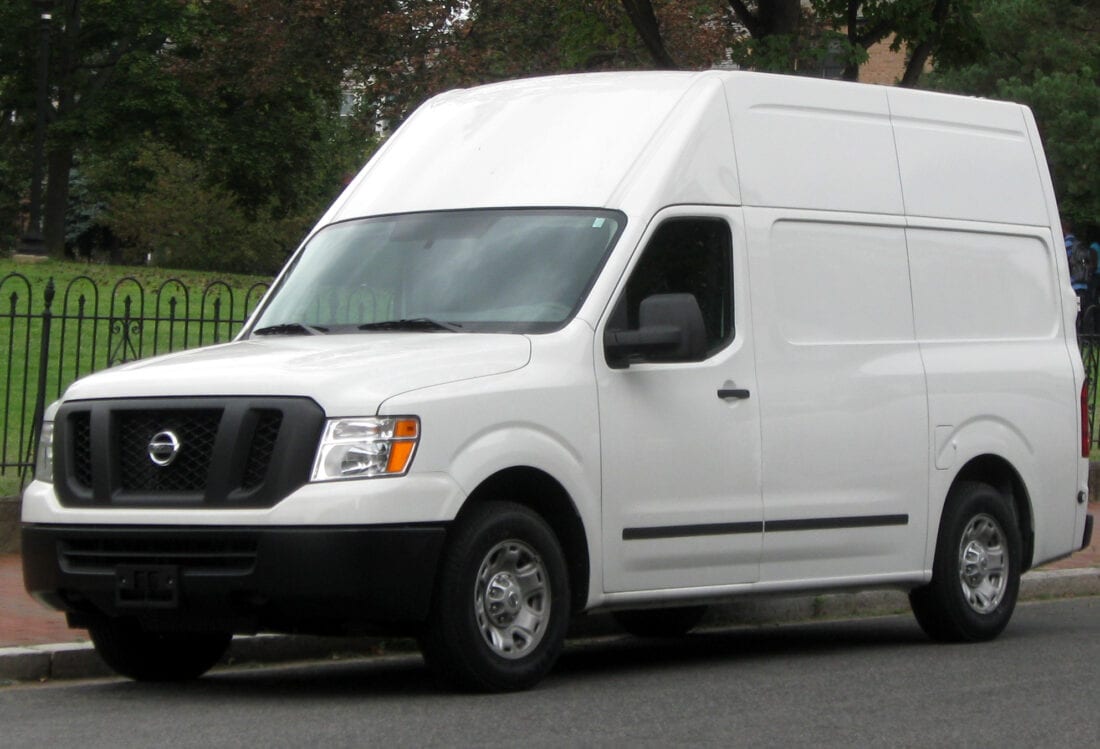
This guy isn’t super popular in the van life community (yet), but the NV has its place. They are more a “live out of” than “live in” van because of their size.
The good news is, they come with 120V outlets in the cab, and some trims also have them in the back. The NV’s width is like that of a Sprinter or Transit at 70”. They come in rear wheel drive and gas engines only.
The NV doesn’t give you a lot of size options. There’s only one body with an interior length of 120” on a 146” wheelbase. However, you do have a low and high roof option. The low roof gives you 56” of interior height. The high roof gives you 77” of interior height, which is impressive considering the size.
Because they are smaller than the other cargo vans, the NV gets great fuel economy. Additionally, you can get a V8 engine.
Mitsubishi Delica
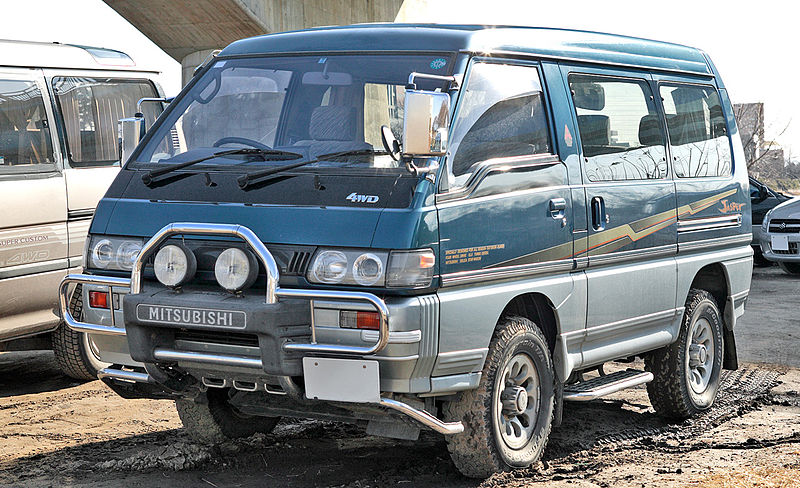
The Mitsubishi Delica is a super popular van in Japan and was also sold under different names in Australia (Starwagon), New Zealand and parts of Europe (L300/L400).
What these vans lack in size, they more than make up for it cool points. These 4×4 off-road machines also make pretty awesome vanlife conversions too… if you can get used to the small size.
They can be found in both gas and diesel, and what you’d probably want to look for is the 3rd or 4th generation Delica in the USA… where they are beginning to become more prevalent thanks to the export influx of used vans coming from Japan.
Volkswagen Vans
Living in a VW Bus or Westy means living life in the slow lane. Like they maybe go the speed limit kind of slow.
Although they can make it up a steep grade, it’ll be chugging along well under the speed limit.
Some folks like the Bus and Westy because they’re easy to work on. It’s good thing too because they require a lot of maintenance and repairs.
Because of their popularity, these sexy little vans not only cost you a pretty penny to maintain, but also to buy.
The Bus
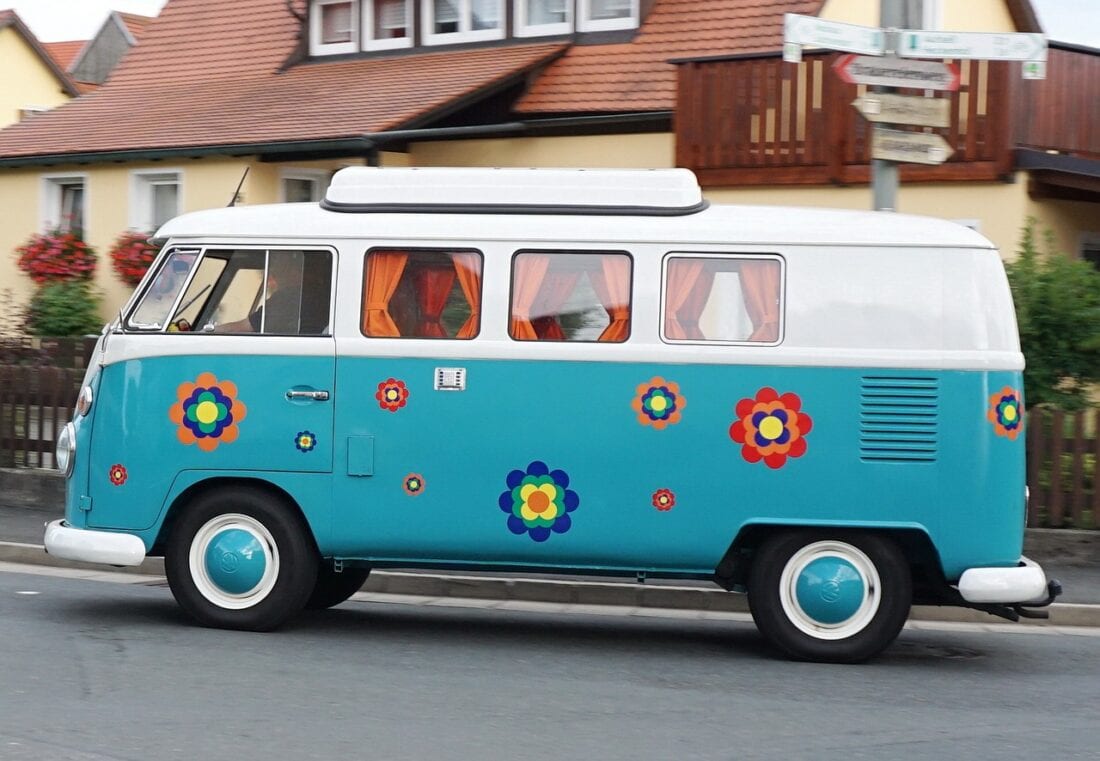
This is the quintessential van life vehicle. Many folks fantasize about cruising the country in an old school V-Dub. These iconic vehicles are great conversation starters, instantly making you a hit wherever you go.
However, if you’re leaning towards a Bus, it’s likely because of the looks. So, I’ll spare you a lot of tech specs and get to the nitty gritty.
If you plan to spend time in colder climates, the VW Bus isn’t the best choice. They’re hard to insulate and many Bus van lifers complain of not keeping warm in the winter.
Also, because of their size, your storage is limited. But there are quite a few buses out there with pop tops for extra headroom.
On the plus side, the Bus has good ground clearance and can handle itself well off-road.
If you’re going for street cred, the VW Bus will always be considered one of the best vans to live in. But if comfort is more you’re thing, meet the Westfalia.
Westy/Vanagon
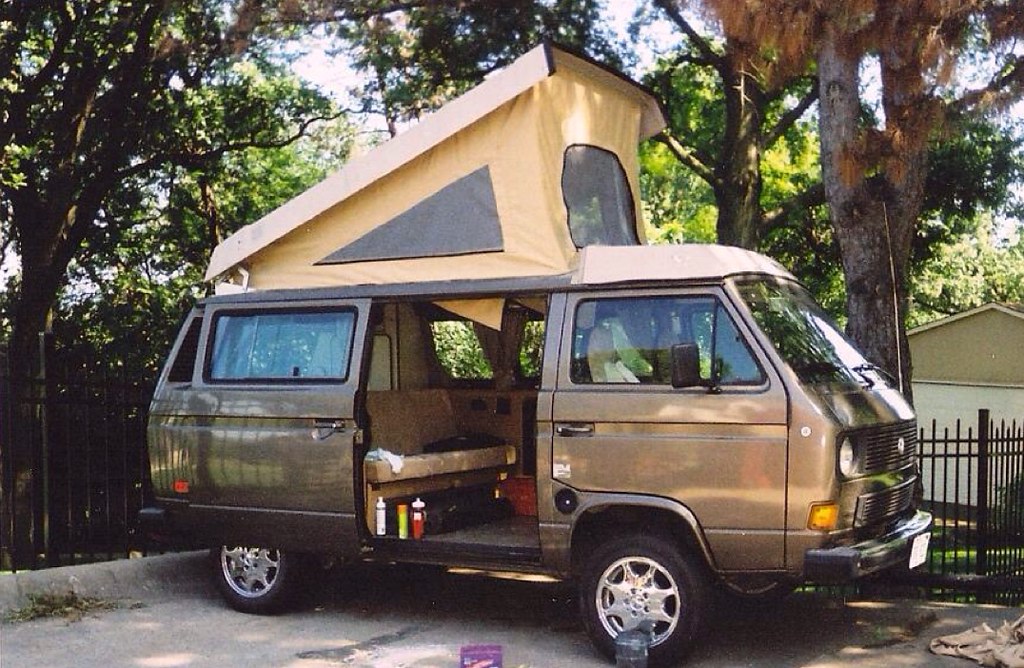
Like the Bus, the Westy is another classic, head-turning VW.
Unlike the Bus, Westies come pre-built with everything you need – stove, fridge, bed, sink and a couch that converts into a bed.
Additionally, they come with a pop top that houses a spare bed! The clever layout and design of the Westy maximizes space. However, some find the storage limited and opt for a roof top cargo box.
That wraps up the list of the best vans for conversion and to live in. But wait, there’s other options.
Non-Vans
Truck Camper

If you’re not super worried about space and want way more vehicle options, a truck camper is a great choice. You can slide a camper into almost any pickup truck that can handle the load.
Additionally, you can find trucks that already have a camper installed. And if you’re into off-roading, a truck camper might suit your needs better than a Sprinter.
The campers themselves give you a lot of options. You can get a basic one or splurge for a mini top-of-line RV-like camper. There are even pop top campers that give you more headroom.
However, there are always disadvantages. Truck campers are not stealthy. Additionally, pickup trucks tend to have not-so-good fuel economy.
Whether you plan on part-time or full-time vehicle living, a truck camper has a distinct advantage. You can setup the camper itself off the truck. If you’re a part timer, this means you can use the truck without the camper as a daily driver. And if you’re a full timer, you can setup the camper at your campsite and take only the truck to explore. Something to think about…
Skoolie
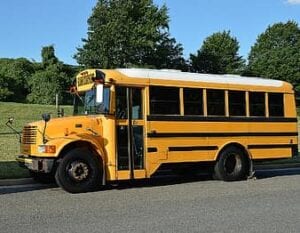
#buslife give you a whole lot more room than #vanlife.
You’re also not short on options when considering a bus. From school buses to shuttle buses, there are many sizes to choose from. They also come in gas or diesel. And the diesels are known for their longevity – up to a million miles!
The biggest downside to a bus is fuel economy.
Also, the longer buses are a lot harder to maneuver than the longest van. Moreover, that long buses leave you more prone to high centering if you hit a back road.
Class B RV
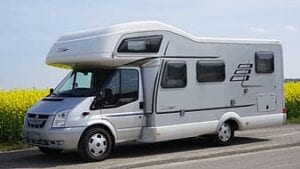
From the outside, it’s hard to tell a Class B apart from a regular cargo van conversion.
But on the inside, they have all the luxuries of an RV squished into the space of a cargo van. And I don’t mean to say “squished” like it’s a bad thing.
The interiors are equally impressive as a Class C RV but with more efficient use of space.
The typical Class B comes with a toilet (flush, not composting), shower, fridge, stove, air conditioning, and heat. They’re basically a swankier version of a self-converted camper van.
All this goodness comes at a high price though. A newer used Class B will run you between $75k to over $100k. It is possible to find an older one closer to $50-$60k. However, you don’t have to waste any time building it out. You are road ready as soon as they hand you the keys.
Which are the best vans to live in?
Whew! That’s a lot of options! Whether you want a lot of space, a powerful engine or a head turner, there’s a van or vehicle out there that’s best for you. Didn’t see anything on the list that seemed like a good fit? Don’t worry, there are plenty of options I didn’t cover that.
Remember, you can turn almost any vehicle into home on wheels.
